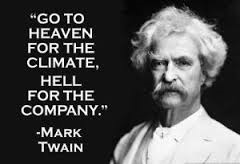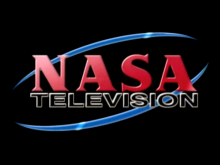All credit for the title goes to Billy Joel, for his wry-grin lyric in Only The Good Die Young:
And they say there’s a Heaven,
For those who will wait.
Some say it’s better,
But I say it ain’t!
I’d rather laugh with the sinners than cry with the saints.
‘Cause sinners are much more fun
Only the good die young
The song is brimming with colorful phrases about suppression of nature for the sake of christolic dogma (and, certainly, Church control of it’s adherents’ souls) . . .
Well they showed you a statue, told you to pray
Built you a temple and locked you away . . .
That stained glass curtain you’re hiding behind
Never lets in the sun . . .
You got a nice white dress and a party on your confirmation
You’ve got a brand new soul
And a cross of gold . . .
But this isn’t about a classic rock song. The song, however, is an irrepressible nod to religious metaphor, if not a tad more direct than the following example. It is a perfect lead-in to a recent epiphany I had.
In his book The Historical Jesus, John Dominic Crossan, in one chapter, gives us the definition for the word “Kingdom” as supported by various attestations—— that is, by its appearance in different locations within biblical scripture, both canonical and non-canonical.
In the following passage, he discusses, from the Gospel of Thomas (a non-canonical text; gee, I wonder why) when the disciples ask Yeshua about entering the kingdom as children; Yeshua asks them, essentially, not to look forward but rather to look back.
When you make the two one, and when you make the inside like the outside, and the outside like the inside, and the above like the below . . . and when you make the male and the female one and the same, so that the male not be male nor the female female . . . then you will enter the kingdom.
He is—-in this Gospel excluded by the Church—asking the disciples to think about looking back to the past, past Eden, before Adam and Eve sinned (according to Genesis, which I won’t belabor here). He asks them to consider an even more primordial moment before the male and female—-animas and animus—-were split into two beings.
Note the use of the more historically accurate name of Yeshua instead of Jesus; if we are mindful of such a seemingly small change it helps to provide a more distinct delineation between the carefully groomed ‘Jesus’ and the actual historical figure he was, Yeshua.
By asking his closest followers to take a mental leap backwards he is challenging them to consider a more ephemeral cosmological approach as opposed to the utterly human desire to know of the future, of revelation . . . as the Greeks termed it, apokálypsis.
Taking the cue from the primordial example, if you allow yourself to do what countless cultures have done throughout human history you may be able to conceive of a ‘first entity” if you will, a spirit or essence which is considered not yet neither male nor female as we consider the genders of biological life—-the two as one.
Yeshua posed the further challenge to the disciples, to look at a “child” as something that wasn’t male or female but rather as an androgynous Adam (a ‘first entity’)—-an image of its creator, being neither male nor female.
Baptismal regeneration involved the destruction of duality of that between the inner soul and the outer body. between the heavenly, androgynous image of God and its earthly bifurcated counterpart.
These things help to clarify why the child is the perfect Christian metaphor for those entering the kingdom.
The child is considered asexual or pre-sexual or nonsexual in any operational manner and is therefore an appropriate image for the ideal Christian, the Christian who is, in other words, an ascetic celibate. A Kingdom of children is a kingdom of the celibate.
So, what was my epiphany, you ask?
This is why the saints cry.





 This morning I happened upon an article that mentioned live streaming video of the earth from the International Space Station. So I trotted over to NASA.gov and poked around for a few minutes. Eventually I landed at NASA TV. This is the streaming video (in HD, I believe) which shows all the goings-on at our national space organization. I must have hit the programming at the right time because they were showing live video of ISS astronauts performing experiments in the space station. I could listen to the communication between Earth and the station and see the control center in Houston as it was happening.
This morning I happened upon an article that mentioned live streaming video of the earth from the International Space Station. So I trotted over to NASA.gov and poked around for a few minutes. Eventually I landed at NASA TV. This is the streaming video (in HD, I believe) which shows all the goings-on at our national space organization. I must have hit the programming at the right time because they were showing live video of ISS astronauts performing experiments in the space station. I could listen to the communication between Earth and the station and see the control center in Houston as it was happening. 







